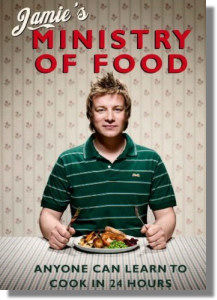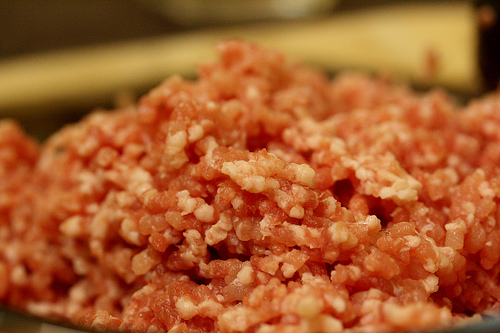Turtles in the 1960s and 1970s were inexpensive, popular, and low maintenance pets, with an array of groovy pre-molded plastic housing designs to choose from. Invariably they would escape, only to be found days later behind the couch along with the skeleton of the class bunny my younger sister brought home from kindergarten one weekend.
 Maybe I got sick from my turtle.
Maybe I got sick from my turtle.
Maybe I picked up my turtle, rolled around on the carpet with it, pet it a bit, and then stuck my finger in my mouth. Maybe in my emotionally vacant adolescence I kissed my turtle. Who can remember?
The U.S. Centers for Disease Control reports there are now 124 confirmed cases of people, primarily kids, infected with outbreak strains of five different Salmonella outbreak strains in 27 states.
There’s a country-wide love for turtles in 2012, even though the U.S. Food and Drug Administration banned the sale and distribution of turtles less than 4 inches in size as pets since 1975.
Two new multistate outbreaks linked to small turtles have been identified since the prior update on April 5, 2012. Overall, 5 multistate outbreaks of human Salmonella infection are linked with exposure to small turtles. Results of the epidemiologic and environmental investigations indicate exposure to turtles or their environments (e.g., water from a turtle habitat) is the cause of these outbreaks.
• A total of 124 persons infected with outbreak strains of Salmonella Sandiego ( and B), Salmonella Pomona (A and B), and Salmonella Poona have been reported from 27 states.
• Small turtles (shell length less than 4 inches) were reported by 92% of cases.
• Forty-three percent of ill persons with small turtles reported purchasing the turtles from street vendors.
• 19 ill persons have been hospitalized, and no deaths have been reported.
• 67% of ill persons are children 10 years of age or younger.
 • Small turtles (shell length less than 4 inches) were reported by 93% of cases with turtle exposure. Forty-three percent of ill persons with small turtles reported purchasing the turtles from street vendors.
• Small turtles (shell length less than 4 inches) were reported by 93% of cases with turtle exposure. Forty-three percent of ill persons with small turtles reported purchasing the turtles from street vendors.
The number of ill persons identified in each state is as follows: Alaska (2), Alabama (1), Arizona (3), California (21), Colorado (5), Delaware (3), Georgia (3), Illinois (1), Indiana (1), Kentucky (1), Massachusetts (3), Maryland (6), Michigan (2), Minnesota (1), Nevada (4), New Jersey (7), New Mexico (3), New York (24), North Carolina (1), Ohio (2), Oregon (1), Pennsylvania (9), South Carolina (3), Texas (12), Virginia (3), Vermont (1), and West Virginia (1).
The complete update is available at http://www.cdc.gov/salmonella/small-turtles-03-12/index.html.
.jpg) treatment. His blood pressure was high and he is being treated for that.”
treatment. His blood pressure was high and he is being treated for that.”
 Maybe I got sick from my turtle
Maybe I got sick from my turtle.jpg) bacteria.
bacteria. For some faiths, like creationism, biology don’t matter much.
For some faiths, like creationism, biology don’t matter much..jpeg) infection; a 17-month-old has also developed life-threatening complications affecting the kidneys. The other patients are all adults, health officials said.
infection; a 17-month-old has also developed life-threatening complications affecting the kidneys. The other patients are all adults, health officials said..jpg) gender of the victims.
gender of the victims. Yesiniosis is a gastro-intestinal disease which is notably caused by the bacterium Yersinia enterocolitica. Yersinia are predominantly spread through food, especially raw pork. Pork, for example minced pork and seasoned minced meat, is often eaten raw in Germany. One of the surprising findings of the published study was the high number of children who had eaten raw minced pork. Even of children who were one-year-old or younger it was reported that almost 30% of those who had fallen ill (and 4 % of the control persons) had eaten raw minced pork.
Yesiniosis is a gastro-intestinal disease which is notably caused by the bacterium Yersinia enterocolitica. Yersinia are predominantly spread through food, especially raw pork. Pork, for example minced pork and seasoned minced meat, is often eaten raw in Germany. One of the surprising findings of the published study was the high number of children who had eaten raw minced pork. Even of children who were one-year-old or younger it was reported that almost 30% of those who had fallen ill (and 4 % of the control persons) had eaten raw minced pork..jpg) “such meat must be cooked until the juices run clear and the meat has a whitish (poultry), gray-pink (pork) or gray-brown (beef) color. The inside temperature of the meat should be at least 70 °C for two minutes. If in doubt, consumers can measure this temperature by means of a meat thermometer.”
“such meat must be cooked until the juices run clear and the meat has a whitish (poultry), gray-pink (pork) or gray-brown (beef) color. The inside temperature of the meat should be at least 70 °C for two minutes. If in doubt, consumers can measure this temperature by means of a meat thermometer.”.jpg) has three kitchens in Ottawa, two of them owned by Jonathan Morris. He said the public-health department is focusing on one of his facilities, on Boyd Avenue near Carling and Clyde.
has three kitchens in Ottawa, two of them owned by Jonathan Morris. He said the public-health department is focusing on one of his facilities, on Boyd Avenue near Carling and Clyde. house chef.
house chef..jpg) there is a common source for the infections.
there is a common source for the infections.